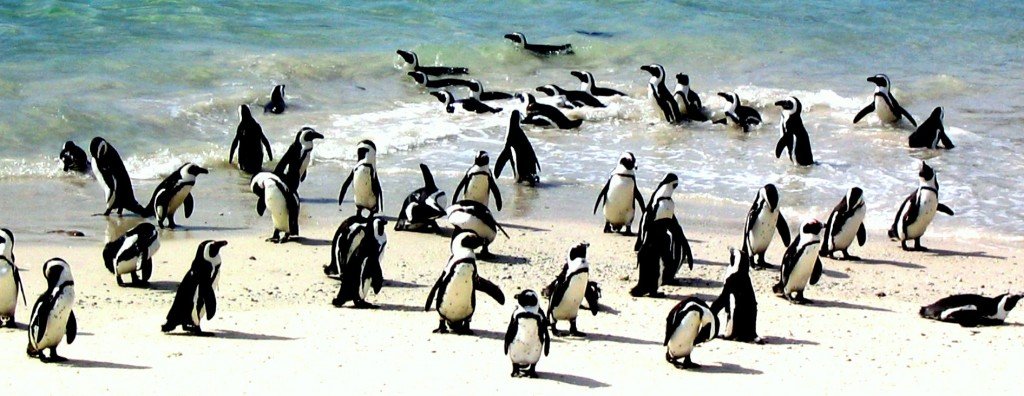Africa’s once ubiquitous penguins are now fast approaching extinction. The small flightless birds, which have attracted thousands of tourists every year, have scientists divided over what exactly is causing their dwindling numbers. Though efforts to conserve the species have been put in place, without getting to the bottom of what is really causing their deaths, conservationists may never truly save them.
African penguins are only found in South Africa’s coastal beaches and some parts of Namibia. In the 1930s, their population was put at 1 million. Fast forward to today and their population has been estimated at a meager 100,000, representing a drastic 90 per cent decrease.
So grave is the situation that in 2010, the International Union of Conservation of Nature (IUCN) declared Africa’s penguins endangered.
As conservation efforts were sought to protect the remaining penguins, focus was turned to what was actually causing the decline. Bird specialists and fisheries scientists were in agreement that the penguin decline began at around 2004 along with a shift in anchovies and sardines. The two fish species, which are the staple food for penguins, moved south into colder waters because of warming coastal waters, overfishing and natural fluctuations.
The migration of the fish has meant that penguins must swim further into the waters to get food, leaving them weakened. Many abandon their chicks and others end up at rehabilitation centers dedicated to saving the black and white birds.
In order to cut down on the fishing and save the penguins, the South African government in 2008 banned fishing in four key points that served as penguin sanctuaries. These are: Dassen and Robben Islands along the Atlantic and Bird Islands and St. Croix along the Indian Ocean.
Biologist claimed the ban on fishing would bolster penguin chicks’ survival rates by up to 18 per cent.
Fishermen did not take kindly to the ban. Anchovies and sardines comprise the largest component by volume of South Africa’s fishing industry. In revenue, they are the second.
Mathematical modelers analyzing fish populations recently dismissed the idea that fishing was to blame for the penguins’ decline. Using fish population modeling methods as a reference point, the modelers said the fishing quotas only allowed for 10 per cent of the anchovy and sardines populations to be fished, leaving more than 90 percent available for the penguins.
The fisheries experts blame predators such as sharks, heat stress and nest flooding for the gradual penguin decline and not over fishing.
To determine the cause of the decline, an international panel of experts has been called to review the closure of fishing grounds and determine whether it has contributed to conserving the penguins. However, conservationists have warned against taking too long.
According to Birdlife South Africa conservation program manager, Ross Wanless, “There’s a lot at stake. We need to act now. “
Penguins are a rare beauty in Africa. Only found at the very southern tip of the continent, their presence has brought numerous tourists to the region. Should they go extinct, not only would a huge source of revenue be cut but South Africa’s coastline would never be the same again.
Stay Connected